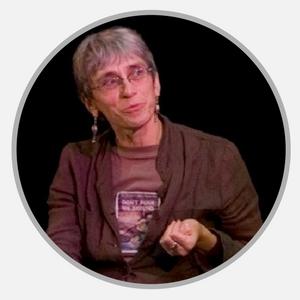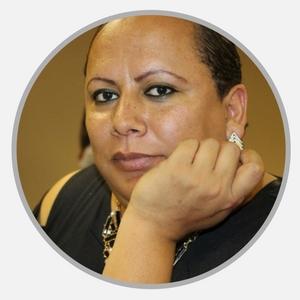A Conversation between Disability, Intersex and Trans Activists
On 17 August, as part of the AWID Forum process AWID, CREA, the Coalition of African Lesbians (CAL), and RESURJ held a webinar on Bridging Gaps, the second in a two-part series leading up to the session at the AWID Forum 2016 on Bodily Integrity and Freedoms.
Bodily Integrity and Freedoms conceptually spans a whole range of issues that act as drivers of our different movements. Nevertheless, different movements can define bodily integrity and freedoms differently, or have different focuses when working towards this goal.
As our moderator, Nidhi Goyal, noted:
"Disabled people might be looking at the need to address medicalization of disabled bodies, while intersex people are looking more at the medical “correction” of their bodies, while trans people are looking for the autonomy to decide what gender they want to be and live their lives accordingly. Women with disabilities, for example, are traversing the intersection between women’s movements and disability movements trying to find a foothold that connects the two."
In the first webinar on #BodyAndTerritory, the group had discussed how fragmentation of social justice work into silos is in itself a logic of oppression. With this in mind, the aim of this second webinar was to bring together perspectives from within different movements to strengthen the work we do across them.
This conversation was important to have because, as Nidhi put it, “When we talk about bodily freedoms, it’s not about challenging only one kind of power structure, but struggling against the multiple and intersecting power structures that shape our lives”
Watch the recording
Highlights from the presenters
Adriana Dias
Coordinator of the Committee on Disability and Accessibility of the Brazilian Anthropology Association. Research coordinator on people living with rare diseases at the Baresi Institute and at an NGO called Essas Mulheres.
-
Research they conducted in Campinas, Brazil revealed that women with learning disability experience abuse at rates that are nine times higher than the average women.
-
Research also shows that 90% of women with learning disabilities women in Brazil suffer sexual abuse at some point in their lives. In certain parts of Brazil, 100% of women with handicaps were sterilized
-
There is a need to transmit feminist ideas to wider society to combat damaging attitudes against women with disabilities - feminism has made inroads in academia but not amongst the general population or even many social movements

Janet Price
Activist and academic who works at the intersection of disability, sexuality, and gender based in Liverpool, UK.
-
Points of convergence exist between feminist movements and disability rights movements, in particular around issues of pathologization, sexuality, and feelings of shame.
-
Sex workers have been excluded from all movements. The disability movement is often very conservative and will not approach issues of sex, nevermind sex work.
-
The issue of Zika has provoked a discussion on the tensions that can arise between reproductive rights and disability rights, but has also shown that this relationship doesn’t have to be one of conflict. We must recognise the links between disability and mental health. When you lost mobility, for example, you lose your self-esteem, social circle and independence.
-
Stigma is a cross-cutting issue. To confront this we must break down the hierarchies in our own minds and be speak openly about disability, including about feelings of guilt and shame.
-
Victories in cross-movement work - African organizations setting up a coalition of disability and women’s rights group, for example.

Morgan Carpenter (@morgancarpenter)
Co-chair of national intersex organisation @oiiaustralia, founder of a new international Intersex Day project, and an advisor to the first international Intersex Human Rights Fund
-
Points of convergence - Othering - Intersex women are othered as not “real women”, men as not “real men”.
-
Not granting intersex people their full humanity reflects the treatment of other groups such as racialized subjects, women, and people with disabilities.
-
Stigma feeds into eugenic discourses - intersex traits and disability traits are seen as reasons for pre-natal selection or sterilization.
-
We need to change the discourse and show that both of these groups can live happy fulfilling lives, while at the same time not concede any ground on the right to choose abortion.
-
Points of divergence - Intersex women are marginalized by mainstream feminism, despite genital mutilation being a clear feminist issue.
-
Victories - In 2015 Malta became the first country to create a law on the right to bodily integrity and physical autonomy which prohibits the modification of children’s sex characteristics for social or cultural reasons.
-
Victories - Intersex and disability rights groups worked together to advocate for bodily integrity of both groups in the context of Senate investigation into coerced sterilization in 2013, an issue which was taken to the UN Committee Against Torture.
-
Challenges - lack of funding for people working on intersex issues and across movements. We need to push our funders to ‘broaden the boxes’.
Download Morgan’s Presentation

Leigh Ann van de Merwe
Founder of SHE (Social, Health and Empowerment) a feminist collective of transgender women working in Southern and East Africa
-
Points of convergence between trans struggles and other movements such as sex workers’ rights and work on HIV - Trans women do sex work for many reasons including economic reasons, and as a gender affirmative practise. Work on HIV is another area of convergence with trans struggles.
-
Convergence between feminist movements and trans movements - Gender-based violence is a cross-cutting issue. Leigh Ann recalled that she was harassed prior to her transition for being a feminine boy, and post-transition simply for being a woman.
-
Points of divergence - Gender-based violence struggles remain a contested space that often excludes many people.
-
Trans people’s issues should not be seen as a ‘special issue’ but need to be counted in the broader picture of SRHR.
-
Victories in cross-movement work to advocate or the decriminalization of sex work and in convenings bringing together young women, HIV-positive women, rural women, trans women.
-
A project to create a trans feminist manual, to be piloted next year, aims to shift the discourse at grassroots level towards using intersectional feminism as a framework for advocacy on trans issue.
Highlights from the Audience
-
The gendering of care issues has sometimes become an point of tension between disabled women and feminists.
-
We need to discuss which bodies are valued in life and death - the recent slaughter of disabled people in Japan shows and lack of media attention shows that come bodies and lives are not seen as ‘grievable’.
-
‘Passing’ and mimicking norms is a point of convergence across these movements - whether a racial norm, ableist norm, or a gender norm.
-
Movement can be very delicate spaces with rules that feel too hard. Are movements then the best way we can be organised in order to amplify our voice? Can we propose alternative methods to amplify our voice?
-
How do we create a space for real intersectionality of movements in the face of serious resource constraints? The silos exist primarily to create exceptions and exceptional circumstances to attract more resources for certain movements.
-
Religious fundamentalist movements must be seen as a key threat to bodily integrity and freedoms.
